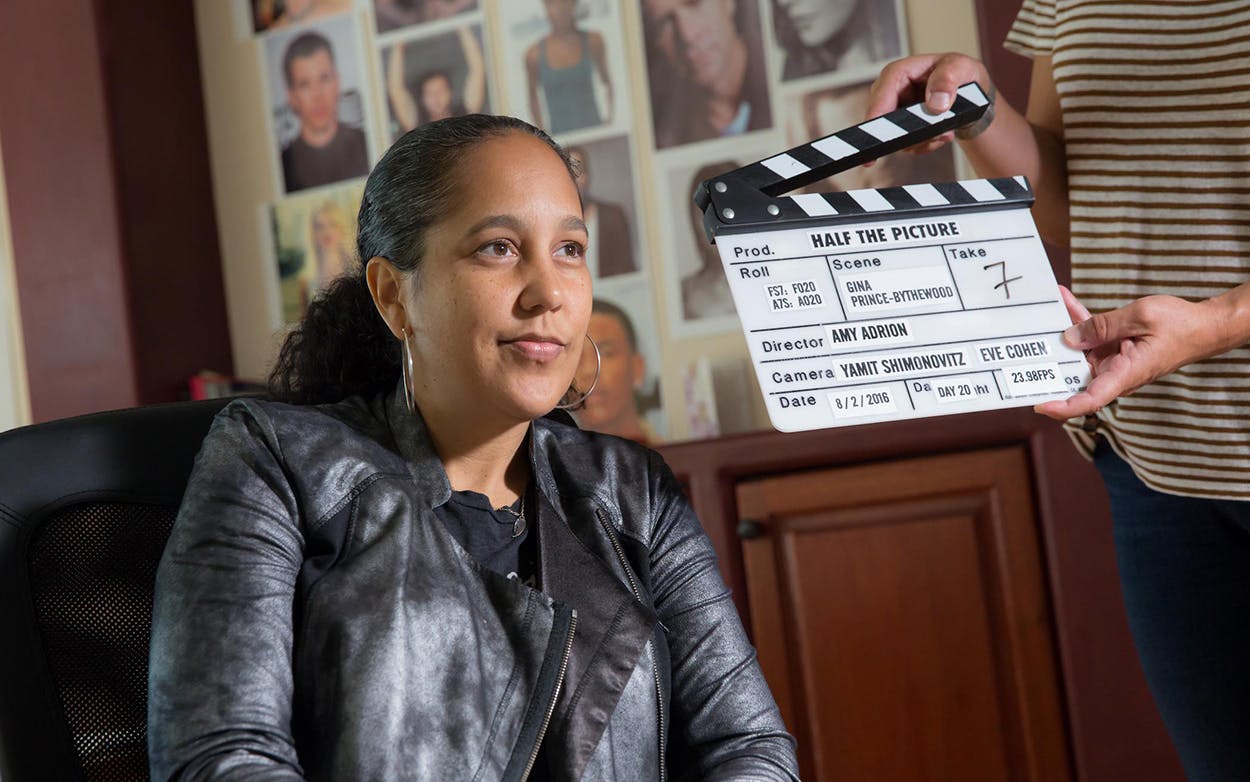Amy Adrion thinks we need to talk about gender inequality in Hollywood. But the director of Half the Picture isn’t just saying that in the aftermath of Harvey Weinstein allegations—she’s been talking to women in the film industry about more equity for female directors for years. The timing of her documentary’s selection for SXSW this year, which boasted a high number of narrative feature films directed by women, is a coincidence—and necessary.
Adrion began filming in December 2015 after she began to question whether being a director was a viable career path for women. Over the next year and a half, she interviewed directors including Ava DuVernay, Jill Soloway, and Jennifer Phang about topics ranging from systemic discrimination to sexual harassment to motherhood and directing. She conducted her last interview for the documentary in May 2017, months before the first article about Weinstein changed the conversation in Hollywood. Premiering at Sundance in January and screening at SXSW in March, the film fits seamlessly into a larger cultural conversation about harassment and discrimination.
For Adrion, who welcomes her film’s inevitable inclusion in #MeToo and #TimesUp conversations, the many stories of sexual harassment out of Hollywood boil down to gender inequality. “That’s the core problem, and all these other things emanate from the fact that you have largely white men in power,” Adrion says. “It sets the stage for all these other kinds of bad behavior, whether that’s unequal payment or sexual harassment or sexual assault. Women are working in a system where you have to curry favor with men to advance.”
Even while tackling heavy subject matter, Adrion says her documentary is largely about “sisterhood.” In the film, directors don’t just share their battles with gender bias, disrespectful subordinates, and unwanted advances, but they also offer advice and solutions. Many of the women in the documentary share stories of overcoming obstacles, often referencing one another as people who helped open doors for them. Many specifically named Gina Prince-Bythewood, director of Love & Basketball and Beyond the Lights, for the various ways she helped them, but there were also examples of how directors like DuVernay and Soloway used their positions at Queen Sugar and Transparent, respectively, to provide opportunities for other women directors. It’s a system of support between women that Adrion says has been “happening forever.”
Toward the end of Half the Picture, Adrion talks to directors who helped push for an investigation by the Equal Employment Opportunity Commission into Hollywood’s hiring practices in 2015. As of February 2017, sources reported that the EEOC (which does not comment on investigations) had found major Hollywood studios guilty of discrimination against women directors and was in settlement talks with them to improve their hiring practices. But Adrion voiced concerns about where that investigation may stand now.
“The wrinkle that we have now is that the EEOC is part of the Department of Justice. Jeff Sessions is our attorney general and Donald Trump is our president. So I would not be surprised if the priorities of the Department of Justice have changed since November [2016],” Adrion says. “It really depends on how many resources and how much energy the Department of Justice and the EEOC wants to put behind this issue.”
But as conversations continue and Hollywood waits on legal decisions, there’s one solution that Adrion says is readily available. “The problem is fixed when you hire more women,” she says. She hopes the women featured in Half the Picture are just the start.








